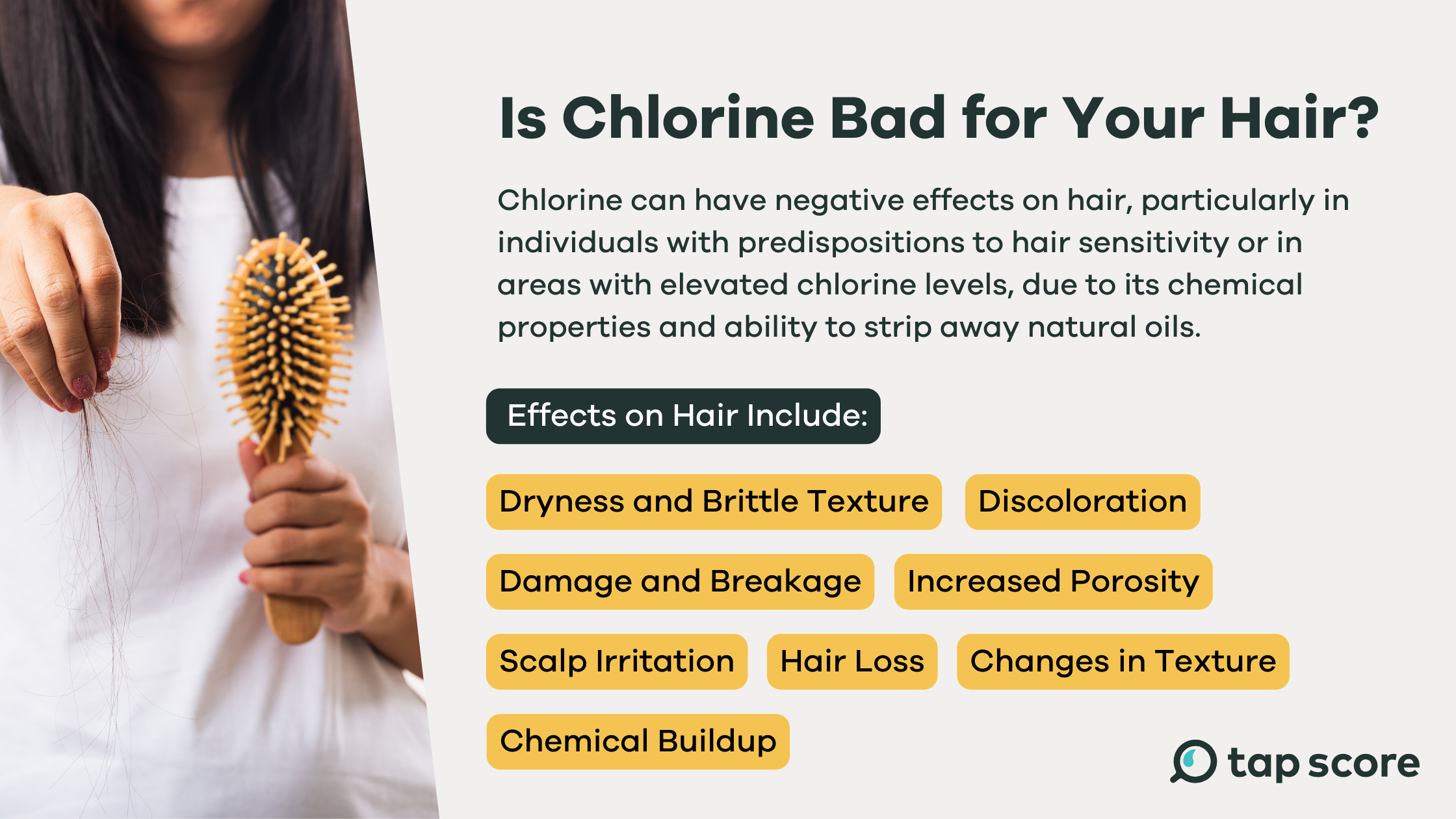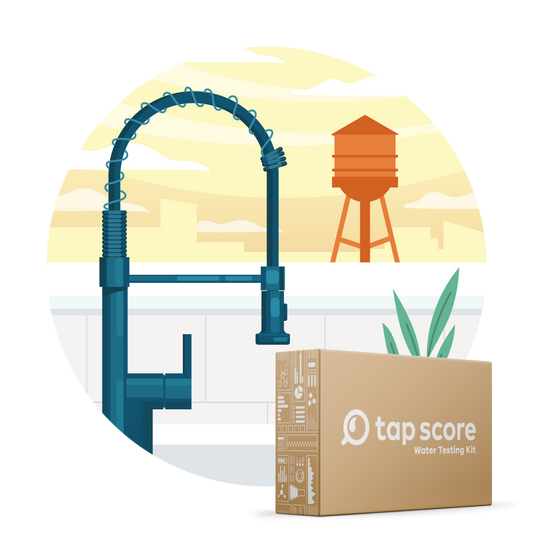
Is A Shower Filter Necessary?
Our blog is written by real experts— not AI. Each guide is carefully reviewed and updated based on the latest research. Plus, with no affiliate links, you can count on unbiased insights you can trust.
Despite there being many shower head water filters for sale — many of which claim to remove hardness, chlorine, and microbes — most of these shower water filters receive poor reviews from customers. What's more, there are hardly any third-party validations by labs of shower filter claims.
Enter the guide that asks: Do shower head filters work, what can they filter out, and what is the best type to use? We'll take a closer look at what water quality risks and concerns exist in shower water and what type of filters, if any, are truly effective.
Table of Contents:
Why Use A Shower Filter?
Chlorine
The main contaminant that shower filters typically aim to remove is chlorine. Chlorine is commonly used in the disinfection process in water treatment plants to remove bacteria and remains in trace amounts in drinking and bathing water.
Exposure to chlorine during showering can have multiple negative impacts on human health, such as:
- Respiratory complications (asthma) [1]
- Damage to the skin and hair
- Exposure to carcinogens (ex. chloroform)[2]
- Throat and lung irritations [3]

While some of these threats are legitimate, the ways in which many shower filter companies claim that chlorine enters your body aren’t as accurate.
For example, the claim that human skin absorbs chlorine through direct contact with water during showering is mostly unsubstantiated by science. According to the Wisconsin Department of Health Services, only small amounts of chlorine pass through the skin, which are expelled from the body quickly.[4]
Is Tap Water Bad for My Hair & Skin
Instead, much of the chlorine that enters your body during showering is a result of inhaling chlorine that has vaporized into chlorine gas during hot showers.[5] Humans also inhale other chlorine-related volatile water contaminants during showering, such as chloroform and trihalomethanes.

Chloramines
Some shower head filters also claim to remove chloramines from shower water. Chloramines are sometimes used instead of chlorine in the disinfection process. However, there are no significant studies or evidence that show that shower filters are capable of removing chloramines.
Chloramines are generally harder to remove than free chlorine.
Chlorine and Chloramine as Water Disinfectants
Water Hardness
Additionally, shower filters are not able to remove water hardness in the way that traditional whole-home water softeners do. If you have a water hardness issue, you’re best served by purchasing a whole home water softener to avoid issues with plumbing and fixtures. If you’re a renter, you should discuss this with your landlord.
Sometimes, if a shower filter is effective at removing chlorine, the filtered water might have less harsh effects on your skin and hair, causing it to feel like softened water.
Do Shower Head Filters Work?
The short answer to this question is yes. Certain types of shower filters can successfully remove chlorine from water, with KDF shower filters proving most effective.
There are two primary types of shower filters:
- Filtered shower heads, which replace your existing shower head
- In-line/portable shower heads, which are placed between the water line and your existing shower head
It is important to note that the type of the filter is not nearly as important as the actual technology in use. With dozens of shower filters on the market, picking one that is both effective and does what it claims is tricky.

KDF Filters
KDF filters use a KDF (Kinetic Degradation Fluxion) process to filter chlorine and other impurities out of water. KDF-55 media is the most commonly used KDF media in shower filters, as it is certified by the National Science Foundation, or NSF, to remove chlorine from water.[6]
Other Filters
Shower filters that utilize technology other than KDF, like carbon or Vitamin C filters, are not as reliable, if at all. Carbon filters are ineffectual in filtering bathing water because they do not function well in high temperature or high pressure situations.
In regards to Vitamin C filters, while Vitamin C reacts with chlorine in water, there is no strong evidence that Vitamin C filters alone sufficiently remove chlorine from water. Additionally, be wary of any filter that claims to remove 99% of chlorine. The best filters tend to remove only about 90% of chlorine.
If you want help picking a filtration option from an unbiased, unaffiliated party, the Tap Score Team offers free professional advice. We do not sell filters, but can give insights into your local water quality and what system or test is right for you. Contact our experts.
What's the Takeaway?
- The main contaminant that shower filters typically aim to remove is chlorine
- Chloramines are generally harder to remove than free chlorine
- Shower filters are NOT able to remove water hardness in the way that traditional whole-home water softeners do
- The type of the filter is not nearly as important as the actual technology in use. Consider testing your water to better understand what you want your shower filter to reduce at the point-of-use
Read More
▾General Chemistry of Water
7 Pathogens That Contaminate Drinking Water
Chlorine and Chloramine as Water Disinfectants
Water Chlorination: The Visible Impacts
Trihalomethanes In Tap Water
What's the White Residue on My Fixtures?
Top 4 Most Popular Water Filtration Technologies For Homes
Sources and References
▾- Impact of chlorinated swimming pool attendance on the respiratory health of adolescents
- Human respiratory uptake of chloroform and haloketones during showering
- Chlorine
- Wisconsin DHS Chlorine
- Volatilization Rates From Water To Indoor Air Phase II | Risk Assessment Portal | US EPA
- National Science Foundation










